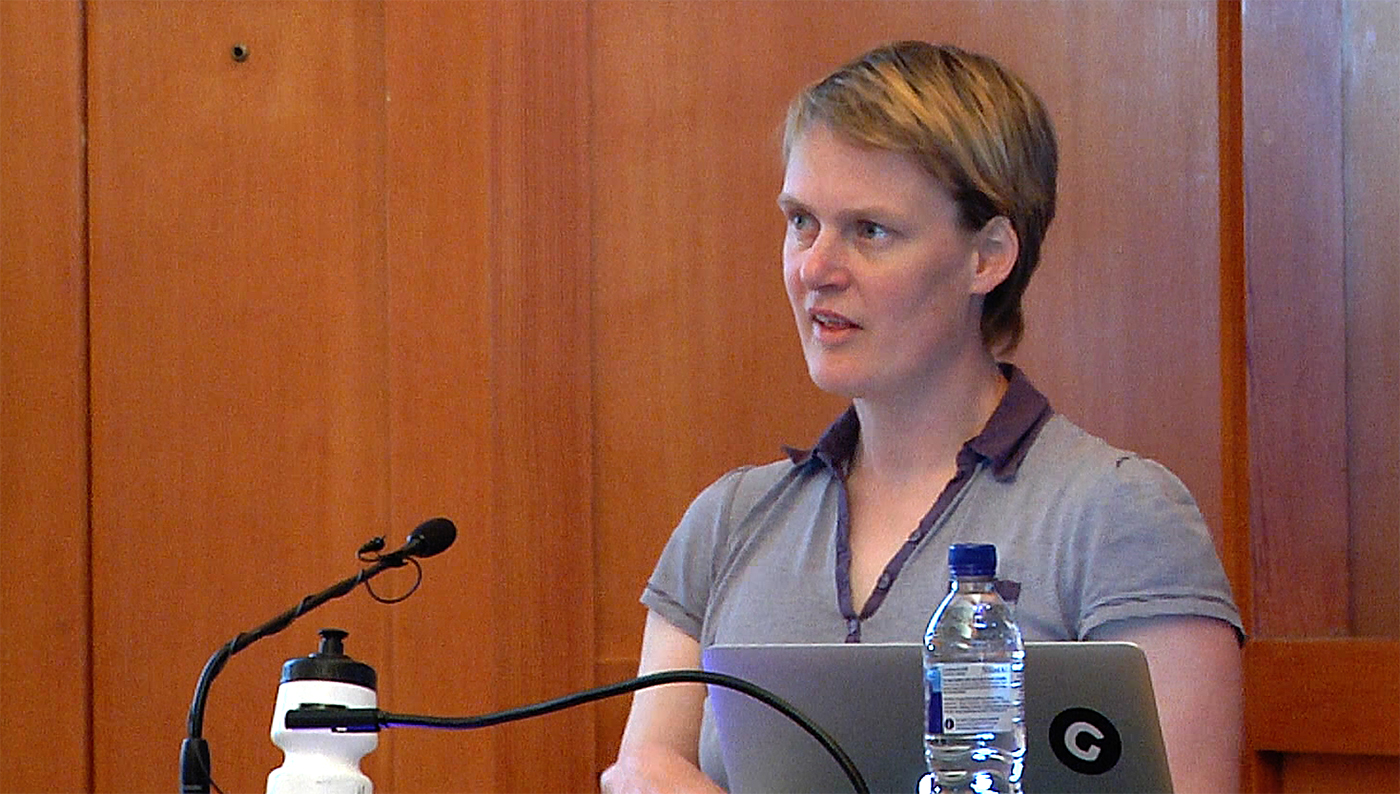Professor Hilary Greaves - 10 May 2017 - Overpopulation: A Driver of Climate Change?
Duration: 1 hour 17 mins
Share this media item:
Embed this media item:
Embed this media item:
About this item

| Description: |
It is often remarked that the significant drivers of climate change include not only high and rising levels of fossil fuel use per person, but also high and rising human population size. The logic behind this remark appears at first sight to be simple: climate change is driven by emissions, and total emissions are equal to per-capita emissions multiplied by population, so of course (one might think) higher population will lead to more climate change.
Professor Hilary Greaves will argue that given a proper understanding of the physics of climate change, this simple argument is flawed. High population may indeed be damaging for reasons related to climate change, but if so, the reasons for this are more subtle; she will outline what they might be. Professor Greaves' current research focusses on various issues in ethics and include: Foundational issues in consequentialism, issues of aggregation, population ethics, effective altruism, the interface between ethics and economics, the analogies between ethics and epistemology, and formal epistemology. |
|---|
| Created: | 2017-05-15 11:12 |
|---|---|
| Collection: |
The Centre for the Study of Existential Risk
The Centre for the Study of Existential Risk |
| Publisher: | University of Cambridge |
| Copyright: | Glenn Jobson |
| Language: | eng (English) |
| Distribution: |
World
|
| Keywords: | Hilary Greaves; CRASSH; CSER; |
| Explicit content: | No |
| Aspect Ratio: | 16:9 |
| Screencast: | No |
| Bumper: | UCS Default |
| Trailer: | UCS Default |
| Abstract: | It is often remarked that the significant drivers of climate change include not only high and rising levels of fossil fuel use per person, but also high and rising human population size. The logic behind this remark appears at first sight to be simple: climate change is driven by emissions, and total emissions are equal to per-capita emissions multiplied by population, so of course (one might think) higher population will lead to more climate change.
Professor Hilary Greaves will argue that given a proper understanding of the physics of climate change, this simple argument is flawed. High population may indeed be damaging for reasons related to climate change, but if so, the reasons for this are more subtle; she will outline what they might be. Professor Greaves' current research focusses on various issues in ethics and include: Foundational issues in consequentialism, issues of aggregation, population ethics, effective altruism, the interface between ethics and economics, the analogies between ethics and epistemology, and formal epistemology. |
|---|---|
Available Formats
| Format | Quality | Bitrate | Size | |||
|---|---|---|---|---|---|---|
| MPEG-4 Video | 1280x720 | 3.01 Mbits/sec | 1.70 GB | View | Download | |
| MPEG-4 Video | 640x360 | 1.95 Mbits/sec | 1.10 GB | View | Download | |
| WebM | 1280x720 | 2.56 Mbits/sec | 1.45 GB | View | Download | |
| WebM | 640x360 | 534.09 kbits/sec | 301.21 MB | View | Download | |
| iPod Video | 480x270 | 524.8 kbits/sec | 295.97 MB | View | Download | |
| MP3 | 44100 Hz | 252.08 kbits/sec | 142.17 MB | Listen | Download | |
| Auto * | (Allows browser to choose a format it supports) | |||||

